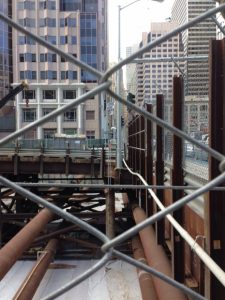When a worker is injured in a Fort Lauderdale construction accident, there are a number of possible avenues of compensation. The first, of course, is workers’ compensation, which is a no-fault insurance benefit afforded to almost all employees in Florida. Exclusive remedy provisions of the state’s workers’ compensation law hold that this benefit is the only compensation a worker can obtain against an employer. However, it does not prohibit third-party liability lawsuits against others who may have been negligent. 
But in order to avoid liability, particularly after an accident that resulted in serious injury or death, a company may try to assert “employer” status, which would grant immunity from a personal injury or wrongful death lawsuit. One way this might be asserted is via the Borrowed Servant Doctrine. This is more common following accidents on construction sites, where it is not uncommon for one employer to “loan” employees to another temporarily.
It’s common for a construction site subcontractor to loan out workers to another to ensure a particular job gets completed. If that “loaned” worker is hurt on the job, the question becomes: Which employer is entitled to workers’ compensation immunity? Unfortunately in some cases, the answer could be: Both.
The common law borrowed servant doctrine allows one employer to loan its employee to another temporary employer. That temporary employer is called a “special employer.” There is a presumption that while an employee is “loaned,” employment with the general employer is retained. However, this presumption can be overcome if the special employer can show:
- There was an express or implied contract for hire between employee and special employer;
- Work done at the time of injury essentially was that of special employer;
- Power to control details of the work were held by special employer.
Where all of these criteria are met, both employers would have the right to assert workers’ compensation exclusivity.
Each state may have a slightly varying handle on the issue, but the Washington Supreme Court recently weighed one of these cases citing the borrowed servant doctrine after a worker fell 50 feet through an open hatch onto a concrete floor.
Plaintiff was working to help dismantle a nuclear facility at a federal site that closed down operations in the late 1980s.
There was a prime contractor involved in the cleanup, but there were a host of temporary workers acquired through various providers. Plaintiff was a permanent employee of the prime contractor and defendant was hired as an independent contractor.
The accident happened in July 2009, when plaintiff was among those working on a catwalk, preparing the building for demolition. During the building inspection, the independent contractor failed to realize the catwalk lacked protective chain guards. While plaintiff was still on the catwalk, some 50 feet in the air, other workers climbed down and left a hatch open, expecting the others would soon follow. However, before plaintiff was completing another task and didn’t realize the hatch was open. He stepped through it and fell.
Although he survived, he sustained serious injuries to his spine and leg.
Plaintiff sued the independent contractor alleging the company was negligent in developing the work package and safety protocols, ultimately leading to his injury.
At trial, independent contractor asserted the borrowed servant doctrine defense, and requested a jury instruction on it, which was granted.
Pursuant to these instructions, if jurors found plaintiff’s employer had exclusive control over the site, it therefore had control over the contractor’s negligent actions and only the employer could be found liable. This would mean plaintiff’s sole remedy would be workers’ compensation.
Unfortunately for plaintiff, this was exactly what the jury decided.
Both the Court of Appeals and the Washington Supreme Court affirmed. Both courts held the application of the borrowed servant doctrine was a question of factors for jurors, and the trial court did not err in giving the instruction.
The case is further illustration of how complex construction accident lawsuits can be, and the importance of hiring an experienced injury lawyer.
Call Fort Lauderdale Injury Attorney Richard Ansara at (954) 761-4011. Serving Broward, Miami-Dade and Palm Beach counties.
Additional Resources:
Wilcox v. Basehore, Feb. 9, 2017, Washington State Supreme Court
More Blog Entries:
Miami Judge Forges Ahead With Air Bag Cases After Takata Pleads Guilty, March 2, 2017, Fort Lauderdale Personal Injury Attorney Blog
 Broward Injury Lawyer Blog
Broward Injury Lawyer Blog



